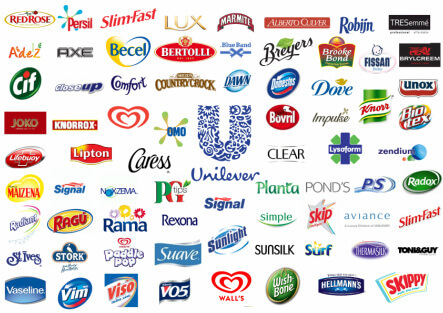Unilever Q3 2024 $ULVR (+0,48%)

Financial performance: Unilever reported Q3 2024 sales growth of 4.5% year-on-year, driven by volume growth of 3.6%. This is the fourth consecutive quarter of positive and improved volume growth, with all business units contributing to this growth. In particular, power brands such as Dove and Magnum achieved a strong sales increase of 5.4%.
Balance sheet analysis: Unilevers emphasizes its efforts to maintain a solid balance sheet through strategic divestments and acquisitions. The sale of the Russian subsidiary and the stake in the Qinyuan Group are examples of such strategic measures aimed at strengthening the financial position.
Income statement: Unilever's sales amounted to EUR 15.2 billion in the third quarter of 2024, remaining at the previous year's level. Although the underlying sales increase was positive, sales were impacted by a negative currency effect of 2.8% and a net effect from disposals of 1.5%. Unilever nevertheless confirmed its forecast for an underlying operating margin of at least 18% for the full year.
Cash flow analysis: Unilever demonstrates a proactive approach to cash flow and capital allocation through better strategic focus on acquisitions, divestments and an ongoing share buyback program.
Key drivers and profitability: Unilever expects an operating margin of at least 18% for the full year, with increasing investment in its key brands. In addition, the company plans to maintain the net debt to EBITDA ratio at around 2x to ensure a stable financial position.
Segment analysis:
- Beauty & Wellbeing: Recorded strong sales growth of 6.7%, driven by volume growth of 5.7%.
- Ice cream: Reported impressive sales growth of 9.8%, with 6.7% attributable to volume.
- Home Care: Reported moderate sales growth of 1.9%, with volume growth of 3.3%.
- Nutrition: Grew by 1.5%, with low volume growth of just 0.4%.
Competitive analysis: Unilever's strategic focus on its Power Brands and continuous innovation have helped the company maintain a competitive advantage. However, challenges in emerging markets, particularly in Indonesia and China, are areas where the company needs to further strengthen its competitive position.
Forecasts and management comments: Management is confident of achieving its targets for the year, with an expected sales increase of between 3% and 5% and an operating margin of at least 18%. The company is focusing on implementing its growth action plan and overcoming the challenges in key markets such as Indonesia.
Risks and opportunities:
- Risks: Currency fluctuations, geopolitical tensions and operational challenges in emerging markets pose significant risks.
- Opportunities: Unilever's continued focus on innovation, brand superiority and strategic divestitures provides good opportunities for growth.
Summary and strategic implications: Unilever's strategic focus on Power Brands and continuous operational improvements have resulted in positive volume growth across all businesses. However, challenges in emerging markets, particularly in Indonesia, require decisive action. The company's commitment to innovation and strategic divestments positions it well for future growth, although currency and geopolitical risks need to be carefully managed. The planned spin-off of the ice cream business and ongoing productivity programs are expected to improve operational efficiency and increase shareholder value in the long term. So it remains to be seen how it all pans out but Unilever is well on the way to improving.
Positive statements:
- Unilever reported its fourth consecutive quarter of positive and improved volume growth, with all divisions delivering higher volumes year-on-year. Underlying sales increased by 4.5%, driven by Power Brands, with particularly strong performances from Dove, Liquid I.V., Comfort and Magnum.
- Beauty & Wellbeing delivered a strong performance with sales growth of 6.7%, driven by volume growth of 5.7% and price growth of 0.9%.
- The ice cream segment grew by 9.8%, with 6.7% attributable to volume and 2.9% to price adjustments. This reflects continued operational improvements and successful innovation.
- In developed markets, underlying sales increased by 6.9%, almost entirely driven by volume growth of 6.8%, reflecting strong growth in Beauty & Wellbeing in North America and Home Care in Europe.
- Unilever's Power Brands recorded strong sales growth of 5.4%, supported by volume growth of 4.3%.
Negative statements:
- Indonesia saw a significant decline in sales of 18%, mainly due to long-term operational issues.
- The Nutrition division recorded sales growth of just 1.5%, with only a slight volume increase of 0.4% amid moderate prices and a general market slowdown.
- In emerging markets, underlying sales grew by just 2.9%, with volume contributing only 1.4%. This indicates slower growth compared to the developed markets.
- In China, sales declined slightly due to continued weak consumer sentiment and Unilever is currently reviewing its market access strategy.
- Home Care recorded moderate sales growth of 1.9%, with volume up 3.3%, partially offset by a price decline of 1.4% due to falling raw material costs.

